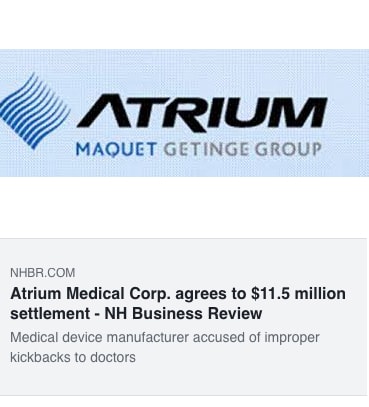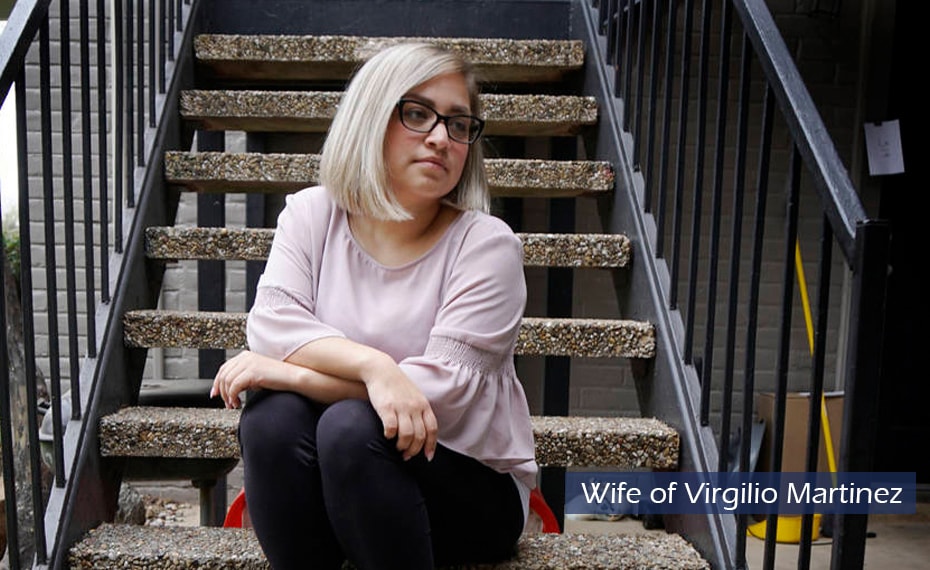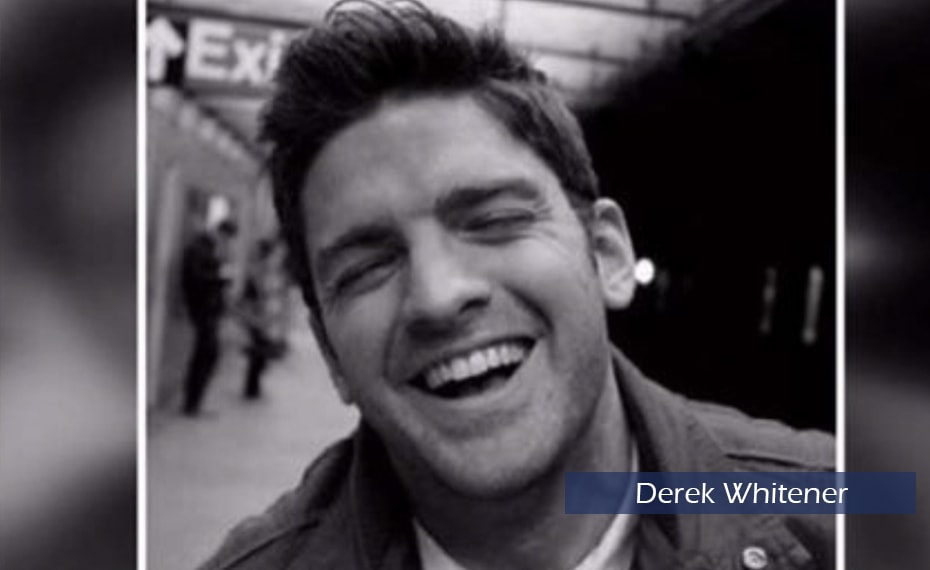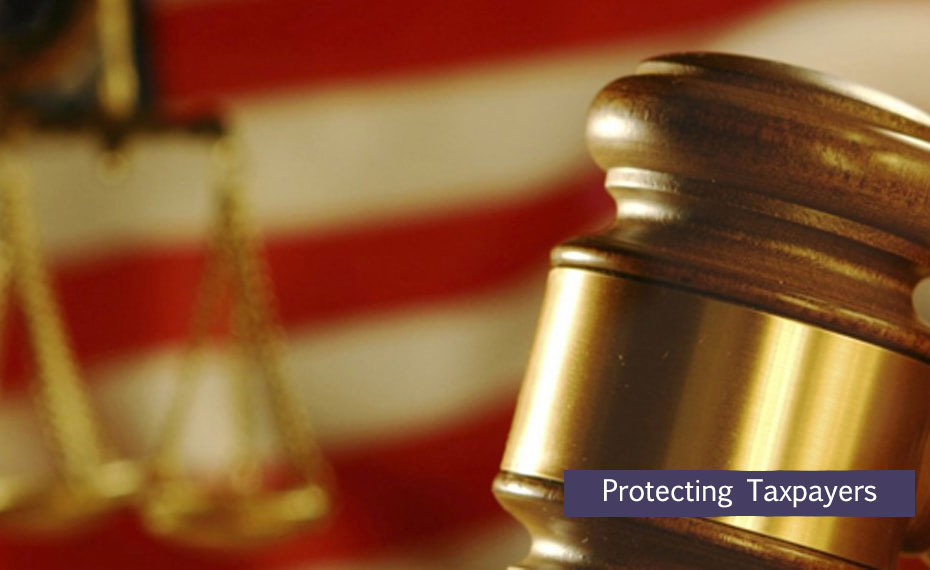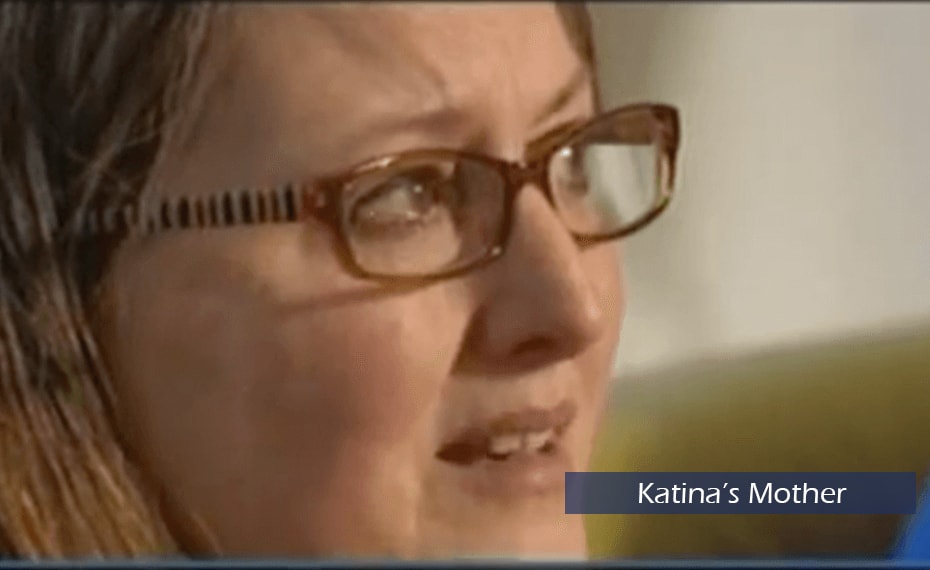
Protecting Taxpayers and Elderly Victims
For years, a medical company illegally paid doctors to use a device for a procedure that hadn’t been approved by the Food and Drug Administration.
Chris Hamilton was able to help expose what they had done when one of the company’s former employees who worked as a territory business manager for Atrium from 2007 to 2012 came forward. They alleged the company engaged in a nationwide scheme to promote its iCast brand stent for use in the vascular system, even though it had only received federal approval for treating tracheobronchial obstructions.
The resulting settlement is one of the largest in U.S. history under the federal False Claims Act involving a medical device where the government declined to intervene.

Protecting Taxpayers and Elderly Victims
For years, a medical company illegally paid doctors to use a device for a procedure that hadn’t been approved by the Food and Drug Administration.
Chris Hamilton was able to help expose what they had done when one of the company’s former employees who worked as a territory business manager for Atrium from 2007 to 2012 came forward. They alleged the company engaged in a nationwide scheme to promote its iCast brand stent for use in the vascular system, even though it had only received federal approval for treating tracheobronchial obstructions.
The resulting settlement is one of the largest in U.S. history under the federal False Claims Act involving a medical device where the government declined to intervene.
Shady Business Practices
Atrium Medical Corp. was the manufacturer of the iCast, a medical stent that was used to treat tracheobronchial obstructions. Atrium wanted to encourage doctors to use the device in their elderly patients’ vascular systems, and bill Medicare for the procedures. However, the standard for this use is much higher and hadn’t been approved by the Food and Drug Administration.
Atrium pushed ahead anyway, and very profitably so, at the expense of taxpayers and unwitting patients. Esther Grace Sullivan worked for the company from 2007 to 2012 as a sales representative and territory business manager. She claimed that Atrium had violated federal law by convincing doctors to use the stents in their patients and then bill military hospitals, the Department of Veterans Affairs, as well as programs like Medicare and Medicaid. She also claimed Atrium provided kickbacks to doctors in the form of financial grants, also in violation of the law. She said this was organized through a series of referral dinners that involved doctors from all over the country and took place over a period of several years. During Sullivan’s time with the company, doctors used the iCast in tens of thousands of vascular procedures, netting Atrium an estimated $382 million in sales. She believed nearly all of that money came from unapproved uses of the device.
Taking up the Case
The False Claims Act is a federal law that holds parties liable for defrauding government programs. However, the government often doesn’t have the resources—or the political will—to prosecute every company that violates the law. When Sullivan, who blew the whistle on Atrium, asked the government to intervene, the Department of Justice declined. The case was close to dead until Chris Hamilton, and a team of attorneys from across the country came on board in 2014.
Winning the Day
The case against Atrium was one of the largest of its kind in which the government chose not to get involved. Before it could go to trial, the company reached a settlement with Hamilton and the rest of his team.
Speaking after the settlement had been reached, Hamilton said, “This was a victory not only for our client but for the many people whose taxes were spent on a device that was used in a way that was never approved by the FDA.” Under whistleblower statutes, Sullivan was eligible for a money reward for her role in exposing Atrium’s actions. However, most of the money obtained in the settlement was used to pay back the government programs that had been taken from by Atrium and the doctors they worked with.Shady Business Practices
Atrium Medical Corp. was the manufacturer of the iCast, a medical stent that was used to treat tracheobronchial obstructions. Atrium wanted to encourage doctors to use the device in their elderly patients’ vascular systems, and bill Medicare for the procedures. However, the standard for this use is much higher and hadn’t been approved by the Food and Drug Administration.
Atrium pushed ahead anyway, and very profitably so, at the expense of taxpayers and unwitting patients. Esther Grace Sullivan worked for the company from 2007 to 2012 as a sales representative and territory business manager. She claimed that Atrium had violated federal law by convincing doctors to use the stents in their patients and then bill military hospitals, the Department of Veterans Affairs, as well as programs like Medicare and Medicaid. She also claimed Atrium provided kickbacks to doctors in the form of financial grants, also in violation of the law. She said this was organized through a series of referral dinners that involved doctors from all over the country and took place over a period of several years. During Sullivan’s time with the company, doctors used the iCast in tens of thousands of vascular procedures, netting Atrium an estimated $382 million in sales. She believed nearly all of that money came from unapproved uses of the device.
Taking up the Case
The False Claims Act is a federal law that holds parties liable for defrauding government programs. However, the government often doesn’t have the resources—or the political will—to prosecute every company that violates the law. When Sullivan, who blew the whistle on Atrium, asked the government to intervene, the Department of Justice declined. The case was close to dead until Chris Hamilton, and a team of attorneys from across the country came on board in 2014.
Winning the Day
The case against Atrium was one of the largest of its kind in which the government chose not to get involved. Before it could go to trial, the company reached a settlement with Hamilton and the rest of his team.
Speaking after the settlement had been reached, Hamilton said, “This was a victory not only for our client but for the many people whose taxes were spent on a device that was used in a way that was never approved by the FDA.” Under whistleblower statutes, Sullivan was eligible for a money reward for her role in exposing Atrium’s actions. However, most of the money obtained in the settlement was used to pay back the government programs that had been taken from by Atrium and the doctors they worked with.
